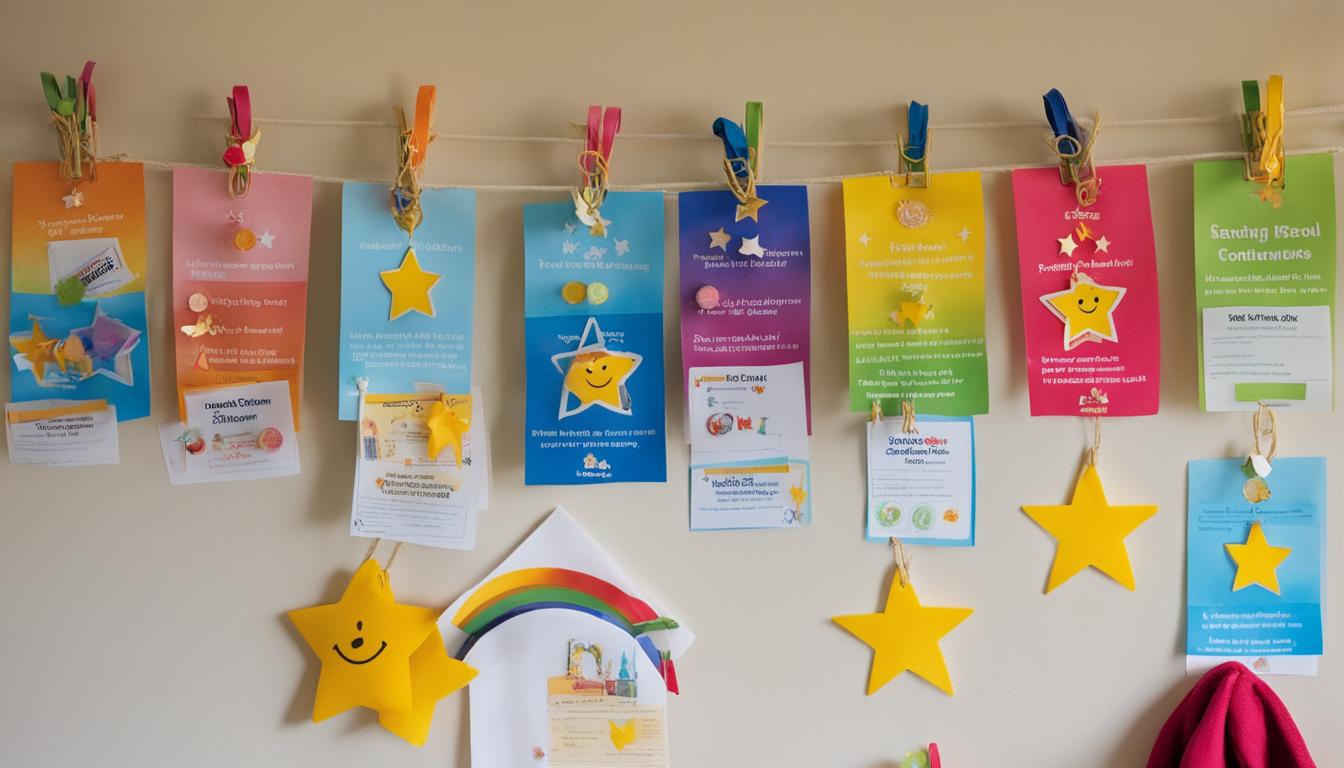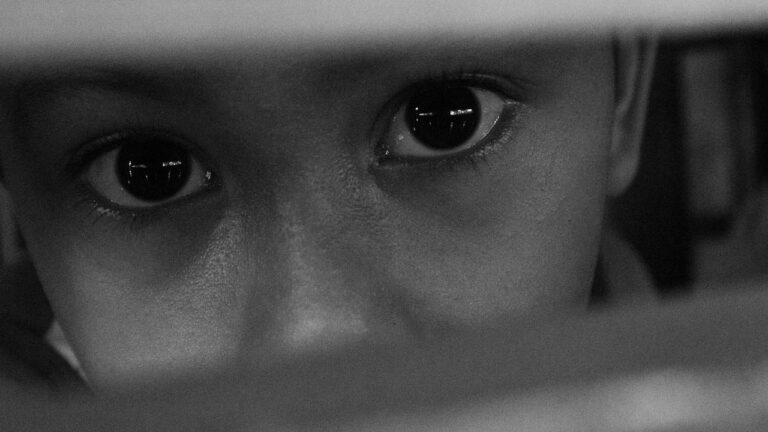50 Tips and Advice for New Parents on Rasing Kids
Like cooking, painting, and driving, parenting is considered a skill. It’s human nature to want to care for a child. But learning parenting skills can make family life less stressful and more fruitful.
In the journey to becoming a great parent, everyone has to start at zero. Think of the learning process like you are going back to school. It is exciting, terrifying, and a little bit pricey.
Of course, you’re not going in alone. Family, friends, co-workers, and physicians will come in and give parenting advice. And while some of them do sound logical and effective, others are a bit… questionable.
There is a lot of misinformation and mixed messages floating around offline and online. Relying on only anecdotes and social media comments won’t make you go very far. What all new parents need is a well-researched, practical, and safe guide in raising a child.
In this compilation of advice for new parents, we made sure everything is easy to follow and backed by research. This list will be divided into 4 main categories. And while not everything can apply to every parent, we ensured to be as inclusive as possible.
Here are 50 tips to help you on your way to becoming a phenomenal parent.
Skip To The Following Sections
50 Tips and Advice for New Parents: From Pregnancy to Childhood
Planning and Pregnancy
Your road to parenthood starts when you and your partner decide to have a child. Plenty of planning and decision-making goes into having children. And during pregnancy, there are even more things that you should know about the baby on the way.
1 Plan Everything Out with Your Partner
Having a baby is not an overnight decision. You will need to plan everything with your partner before considering conception. These include discussing financial capability, time management, and the plans for your child (such as healthcare and education).
2 Get in Contact with Your Doctor
Every mommy-to-be should visit their doctors to ensure a safe and healthy pregnancy. Your physician can guide you on what to do before and after conception, especially if you have a medical condition. They can also prescribe you the right medicines and supplements that you can safely take.
3 Watch Your Diet and Weight
Mothers must be at a healthy weight during pregnancy to avoid any complications. Your doctor will suggest you follow a healthy lifestyle and eat as many healthy foods as possible. You also want to exercise to maintain your physical fitness and to strengthen your body.
4 Have a Mental Health Check-up
Just like your physical health, you also need to value your mental health. So before taking care of your child, you should first take care of yourself. A visit to a mental health professional can give insights on how to cope with everyday life while living with kids.
5 Education is Key
Parenting classes are gaining widespread popularity because of how eye-opening and helpful they are. Every new parent should consider joining classes for parenting, such as for birthing, nursing, and raising babies. Fortunately, classes are available both offline and online.
6 Buy Some New and Comfy Shoes
Pregnancy can cause changes in the muscles and ligaments in your feet, making them softer and strained. If you are carrying a baby for 9 months, chances are you want to be comfortable while doing so. Invest in a pair of good pregnancy shoes and say goodbye to cramped and worn feet.
7 Get a Consultation for Your Medication
Some drugs and supplements can cause interference and compromise your baby’s health. Prescription medicines, over-the-counter drugs, and certain supplements might need to be off-limits for a while. Talk to your physician to know which drugs you can and cannot take.
8 Avoid Substances like Alcohol, Nicotine, and Drugs
Harmful substances in alcohol, cigarettes, and illegal drugs can negatively impact both you and your baby’s health. These substances can lead to conditions that can cause long-term disabilities, premature birth, or even your infant’s passing.
9 Consider Prenatal Yoga
Prenatal yoga is linked to many health benefits, such as improved sleep, better posture, reduced stress, and increased strength. It’s also a good way to connect with other pregnant mothers. Prenatal yoga is safe as long as you are physically healthy and are following your body’s pace.
10 Find a Support System
Studies found that social support can benefit new mothers by improving their mental well-being and self-efficacy. So it’s always a good idea to reach out to family, friends, and support groups. A positive surrounding can make pregnancy easier, smoother, and maybe a little happier.
General Care
It’s the day every parent-to-be dreams of. It’s the baby’s first time in your home and your arms. But this is not the end of your parenting journey. Rather, it is just the beginning.
When it comes to caring for a child, Plenty of things can happen. So here’s what you can do to avoid turning your house (and your mind) into a big mess.
11 Get in Touch with Your Child’s Pediatrician
You’ll need the help of a pediatrician, especially when things go south. Infant child care is a priority that you shouldn’t think twice about. You will need to fulfill your child’s medical needs, such as their vaccinations.
12 Make Sure Your Home is Well-Prepared and Childproof
Home injuries are so common that around 2,000 children experience them every year. Even if junior hasn’t learned how to walk, it’s still a good idea to childproof your home. Creating a safe environment can prevent any untimely trips to the emergency room.
13 Keep Your Hands Clean When Handling the Baby
Newborns are at high risks of contracting infections because of their weaker immune systems. Protect your child by disinfecting your hands before handling them.
14 Keep All Your Focus on Your Child
Put aside your work, friends, and demanding in-laws for a while. Right now, you want to focus all your energy on your baby. Babies demand a lot of attention from their parents, and you don’t want to waste any precious moments.
15 Rest When Your Baby is Also at Rest
Child-rearing is a tiring task and you will need all the energy in the world. You’ll have to say goodbye to your old sleep habits just to care for your baby. So if junior is asleep, you should sleep as well.
16 Don’t Be Scared of Trial and Error when Soothing Your Tot
There are many ways to soothe a crying child and to make them stop crying. Gentle rocking, playing music, and riding around the block are a few strategies for soothing your baby. Don’t worry if you have to do some trial and error if you can’t find the right soothing method.
17 Be Gentle While Holding Your Baby
Shaken baby syndrome is real, and it can cause serious problems for your child. Shaking a baby too hard can cause permanent disabilities. So make sure to be as gentle as possible with your baby.
18 Always Lay Your Baby on Their Back
Around 2,3000 infants in the US die from Sudden infant death syndrome (SIDS) each year. This condition has no determinable cause but has some possible factors. One way to avoid SIDS is to lay your baby on their back, not on their sides or belly.
19 Sponge Baths are they Key to Cleanliness
The first bath that you should give to your baby is a sponge bath. You can do this twice or thrice a week to avoid dry skin. Tub bathing will become safe once the umbilical cord falls off and circumcision heals.
20 Be Prepared for Some Soiled Diapers
Do you know that a baby can use around 10 diapers a day? It sounds a lot, but you will need to change them regularly to avoid rashes, infections, and discomfort. Those nappies aren’t going to change themselves!
21 Stick to Breast Milk for the First 6 Months
The American Academy of Pediatrics recommends mothers exclusively feed their babies with breast milk during the first 6 months. That’s because breast milk has all the necessary nutrients that babies need.
22 After 6 Months, You Can Start Feeding Solid Food
But once your baby turns 6 months, you can start feeding them solid food. You will want to feed them a healthy mix of go, grow, and glow food. When you see your baby showing interest in solid food, then it’s time to introduce it to them.
23 Watch Out for Allergies
Some babies can have allergies to certain food. These are the 8 common allergenic foods. Be very careful about feeding them to your tot.
24 Don’t Forget the Regular Check-ups
Just a brief reminder here that your child needs regular check-ups. Don’t forget to bring your child to the doctor now and then. Make sure they have all their vaccines to avoid any communicable diseases.
25 Be Patient when Baby Becomes Fussy
When your baby turns into a toddler, you can expect plenty of fussiness and tantrums. These are normal parts of growing up. The best response to any fits is to be calm and patient with your child. Avoid getting equally upset because it can worsen the situation.
26 Be their Emotional Role Model
Your child sees you as their role model, so everything you do, they will imitate. Set yourself as a good example by being kind, respectful, and polite to yourself and other people.
27 Learn to Say ‘No.’
Saying ‘no’ is tough, but it is necessary when you want to discipline your child. There are times when you have to say no, like when their actions hurt or when they go against your values. Saying no puts a healthy boundary between you and your child, and it can help them grow socially and mentally.
28 Communication is Key
Any relationship relies on healthy communication. The same goes for your child. Openly communicating each other’s feelings can bring both of you closer. Communication also lowers the chances of fighting, misunderstanding, and isolating.
29 Divide the Work Equally with Your Partner
Allow your partner to help in rearing your child. A lot of first-time fathers are nervous about helping with the baby. What mothers can do is allow their partners to be a part of their babies’ lives and let them do some work.
30 Make Sure Your Child has All Their Needs Met
Always put your child’s needs as a priority. This does not only mean physical needs. Always remember to check on your child’s mental and emotional needs.
Activities and Recreation
Next on our list is the fun part. Playtime is the main priority of a lot of children. You’ll be surprised by how beneficial playing is to the development of your kid.
31 Play Along with Your Child
Join your little tot during playtime to promote closeness and bond. Your child develops their social skills when playing with someone, even if it’s just with you. They also develop other crucial skills, such as creativity and fitness.
32 Give them Colorful Toys
Colorful toys can stimulate a child’s visual and cognitive abilities. Color helps children learn how to find patterns and organize thoughts. Besides, who wants to play with boring, uncolored toys?
33 Pay Attention to Their Body Language
Your child might not be able to communicate verbally, so pay close attention to their body language. It can tell you if they want to keep playing or if they want to stop.
34 Let Them Play with Other Children
Play with other kids can help your child express their emotions, have cooperation skills, and build positive relationships. Besides, playtime is a lot more fun when there is more than one playing.
35 Keep Them Away from Choking Hazards
Some toys come with small parts which your child can easily choke on. Be careful of what you give to them. Stick with toys that have bigger parts and softer textures.
36 Be Gentle and Avoid Overstimulation
Overstimulation occurs when your child experiences too much stimulation that is hard to cope with. This can happen during playtime, so you will want to pull them away when it occurs. Be gentle and avoid any possible triggers.
37 Do Activities that Promote Motor Skills
Toddlerhood is when your child starts to walk and move. And what better way to play with them than through physical activities. Promote motor skills by playing games, like running around or kicking a ball.
38 Read them Books
Books help spark a child’s curiosity and imagination, as well as improving their literacy skills. Books can also teach your kids moral lessons that are important in daily life. So pick up a book and read them a bedtime story.
39 Use the Power of Technology
TV, phones, and tablets are good sources of entertainment. In small doses, they can distract your child with colorful shows and thought-provoking movies, Just make sure you don’t leave them all day in front of the screen.
40 Let Them have Break Time
Children can get tired from playing all day and night. When you think they have had enough, put them to rest. Your child still needs rest and fuel to grow strong and healthy.
Miscellaneous
Finally, we reach the miscellaneous advice. These are tips that don’t really fit a category but are still worth talking about.
41 Have Your Camera with You Every Time
It’s tempting to make a ‘my first baby’ album, so go ahead a make one! Your child only gets to be young once, so treasure every single moment. Besides, they can come in handy when you want to embarrass them in front of their date.
42 Invest in Some Earplugs
Your baby’s crying can be annoying at best and overstimulating at worst. If you feel like you’re ready to break down from the loud volume, invest in some good earplugs. Then can soften the sounds around you, and you can feel more at peace while you take care of junior.
43 Hire a Trustworthy Nanny
When you feel overwhelmed from working, cleaning, and caring, then why not hire a nanny? A trustworthy nanny can look after your child while you fulfill other duties. Just make sure they are trained in caring for children and are nice to your kid.
44 Or Just Ask a Family Member for Help
If you feel hesitant about hiring a stranger, then ask the help of a family member. There’s nothing wrong with asking for an extra hand. Who knows, maybe baby wants some time with grandma too.
45 Keep the Family Pictures Private and Off Social Media
Nowadays, privacy feels more like a luxury. Protect your child from prying eyes by keeping all pictures off of social media. Those bathtime photos won’t look so good in the future when your kid is trying to find a job.
46 Be Careful with Essential Oils
Plenty of people like the smell and calming effect of essential oils. But these oils can irritate your baby’s skin and nose. Make sure to use a patch test first before using them on your child. It’s also a good idea to ask a medical practitioner’s opinion first if it’s your first time using essential oils.
47 Buy Them a Car Seat
Car seats are not just there for aesthetics. They are mandatory by law because they can keep your child protected while in a car. If you own a vehicle, you definitely need to invest in these car seats.
48 Be Careful with Introducing Pets
Some pets can be friendly, while others are a little bit aggressive. Either way, be extra careful when introducing them to your child. Give both your baby and pet some boundaries before letting them interact with each other.
49 Avoid Scented Products
Scented products like candles and air fresheners can irritate your child’s still-developing lungs. Limit their use or wait until your baby is a little older.
50 Remember to Love and Cherish your Child
Finally, always remind yourself about why you became a parent in the first place. The selfless act of bearing a child is done out of love and compassion. So when days get rough and tiring, just think of this as all part of the loving process.
Conclusion
Hopefully, each piece of advice will have made you a better and more capable parent. It’s never easy being a parent, so you will need all the help you can get.
Parenthood only happens once in your lifetime. There will be mistakes and missteps in the way. But at the end of the day, you are on a journey, not a competition.
Cherish every second you have with your child. You’ll realize just how fast time flies. Soon, you’ll see them all grown up and independent.










